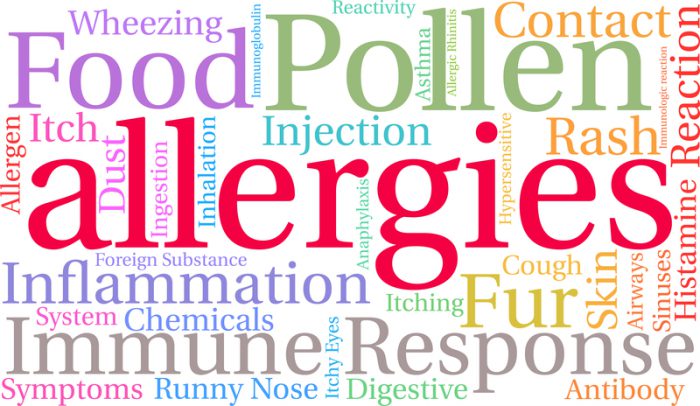How was everyone's Halloween last night? For many of us, one of the favourite things about the next few weeks is choosing a treat or two from your Hallo-haul. Of course, whatever candy you choose, it's going to have to have this symbol somewhere...
We all know why places like schools are nut-free zones. Peanut allergies tend to get a lot of attention because they are relatively common, extremely dangerous, and peanuts are easy to accidentally come in contact with. Researchers have made progress fighting this condition, which is great. But then there are so many other allergies out there: shellfish, almonds, dairy, pet hair, bee stings, pollen...
Sure, not all of these are as deadly as peanut allergies, but they all make life uncomfortable at the very least. Wouldn't it be amazing if we could not just stop allergies to individual items, but all allergic reactions period?
A solution to the problem?
That's what is behind an amazing new discovery from Benaroya Research Institute in Seattle, Washington. Researchers Erik Wambre and William Kwok have led a team that claims to have found the cells at the root of all allergic reactions. They call them TH2A cells.
Like a skeleton key (a key that can unlock all doors), the TH2A cell is present in the blood of all allergy sufferers...but not in the blood of people without allergies.
TH 2 much help
All humans have something known as TH2 cells in their body. They are also called T helper cells, and are an important part of our immune system, which is what fights off infections and diseases. That runny nose, high fever, and swollen, red eye? Those are all just normal signs that your immune system is at work. Usually, this system works very well.
But an allergic reaction is when a particular substance—the allergen—makes our immune system overreact. The TH2 cells over-help, releasing too many histamines and other antibodies. For less severe allergies, people get body itches, red eyes, and endless sneezing. But for stuff like bee stings or nut allergies, the immune system causes life-threatening reactions, like swelling that can stop breathing.
And, according this research, the TH2 cells at the centre of this overreaction? TH2A.
An end to allergies?
So the goal now is to find a way to eliminate the TH2A cells from the bloodstream.
"If we can find a way to stop those TH2A cells," Erik Wambre told FOX Seattle, "the patient can benefit not just for peanut or walnut, but every allergy."
In other words, this could literally mean the end of all allergies. Which would be incredible!
Of course, it's not time to bring nuts to school just yet. Even if they can find a way to kill TH2A cells without harming the immune system of a person, there's no guarantee it will stop the allergy completely. It may only weaken the response.
But for anyone who suffers from an allergy, especially a dangerous one, this is one of the most hopeful signs yet.
 Whether just irritating or life-threatening, allergies are a common problem for many people. (© Arloofs | Dreamstime)
Whether just irritating or life-threatening, allergies are a common problem for many people. (© Arloofs | Dreamstime)










Causes of generating Th2A cells in the body of some people but not all and food of them to live on are to be known. Cancer cells are said to live on carbohydrates without which they can’t survive. Without nutrients cells can’t survive even th2A cells. If it is known, their elimination may be easy.